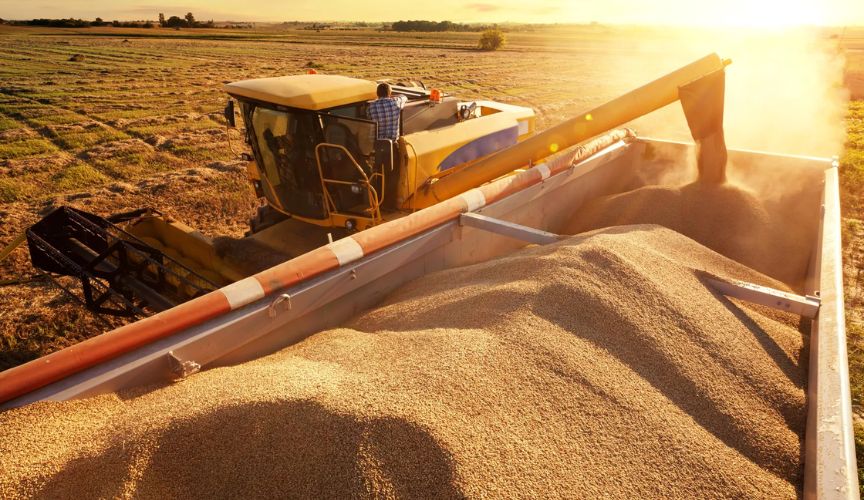In the complex world of farming, making things run smoothly is key. Agricultural supply chain management (ASCM) services play a pivotal role in ensuring the flawless execution of every step in the process.
This blog explores the crucial components that include agricultural supply chain management, showing how they make the whole agricultural supply journey work well. We also delve into the behind-the-scenes brilliance that keeps the supply chain system seamless and efficient.
Components That Keep Agricultural Supply Chain Management Seamless
1. Sourcing and Supplier Management
In agricultural supply chain management, the most important part is meticulous supplier selection and collaboration. Sourcing is like finding trustworthy partners for seeds, fertilizers, and materials. However, it's not a one-time decision; maintaining a consistent, high-quality, and reliable supply chain requires ongoing dedication.
It means knowing what the agricultural enterprise needs, carefully checking out possible suppliers, and building long-term relationships based on trust and reliability. This way, the supply chain remains steady and withstands challenges, ensuring a reliable flow of resources for agriculture.
2. Quality Assurance and Control
Ensuring quality is a key part of ASCM services, ensuring that agricultural products meet set standards. This encompasses rigorous quality control measures implemented at every stage, from cultivation to distribution. Factors such as soil health, crop management, and adherence to safety regulations are all part of the comprehensive quality assurance process.
They collaborate with farmers to maintain the quality of crops based on market demand. Also, Monitoring and managing production processes to ensure quality and quantity standards are met.
3. Logistics and Transportation
When moving fresh produce to markets or delivering raw materials for processing, efficient logistics are key for the supply chain. They work on picking the best routes, choosing the right ways to move things, and using smart technology to make sure everything moves smoothly.
Technology, like GPS tracking and route optimization software, plays a crucial role, in making transportation cost-effective and environmentally friendly. It's about being smart with tech to make the supply chain work better and be kinder to the planet.
4. Warehousing and Storage
In farming, making sure stuff is stored safely is super important. Agricultural supply chain management addresses this crucial aspect through the implementation of intelligent storage strategies. By employing proper storage methods, it prevents spoilage, minimizes waste, and ensures a consistent supply of farm products.
Warehousing involves more than simply storing items in a room. It encompasses efficient inventory management, timely order fulfilment, and ensuring the optimal functionality of the storage facility.
Storage plays a vital role in regions where seasonal variations impact agricultural production. ASCM services prioritize maintaining an optimal inventory level regardless of the season. Leveraging advanced technology, they operate competent storage facilities that provide real-time visibility into the stock, ensuring a well-balanced supply without excess or shortage.
5. Supply Chain Visibility and Traceability
In agricultural supply chain management, the significance of traceability and monitoring the journey of products is increasing. By using advanced IoT (Internet of Things) technology, facilitates seamless tracking and transparent visualization of the entire farm-to-consumer journey.
With an increasing desire for transparency, consumers want to know the origins of their food, and supply chain visibility empowers businesses to meet this expectation. It goes beyond meeting consumer expectations; it also enables swift resolution of issues like contamination or recalls, ensuring the safety and trustworthiness of the products.
6. Risk Management
In farming, lots of things go a bit crazy, like the weather or prices changing. ASCM helps by having smart plans to handle these problems. They use proven strategies to manage risks and make sure everything stays steady, even when unexpected things happen.
Mitigating risks within agricultural supply chain management requires adept strategic planning. Leveraging intelligent tools, potential issues are predicted, and contingency plans are prepared in advance. In the event of risks such as crop failure or disruptions in the supply chain, businesses equipped with ASCM proactively take action to ensure uninterrupted operations and maintain a seamless flow of activities.
Conclusion
Effective agricultural supply chain management serves as the crucial backbone for a robust and efficient farm-to-table process. It encompasses the entire spectrum, from procuring necessary resources and ensuring their quality to efficiently transporting, proper storage, and comprehensive risk management.
With the expansion of agriculture, embracing innovative technology and eco-friendly practices in ASCM becomes paramount to meeting the global demand for food. It involves utilizing solutions while prioritizing environmental sustainability, ensuring a balance between fulfilling the world's hunger for food and safeguarding the planet for future generations.



